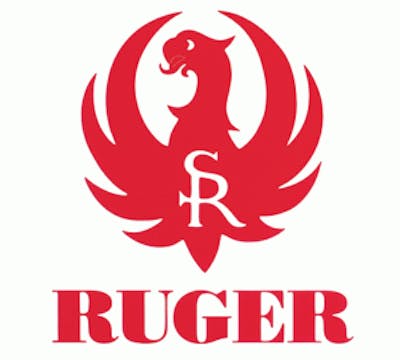
The 220,000-square-foot building, which is expected to be finished by August, will stand as Sturm, Ruger & Company (NYSE:RGR)’s third facility.
So why is Sturm, Ruger expanding its manufacturing capabilities now?
If you build it, they will come …
Remember, in April, the company told us its first-quarter earnings rose 53% year over year, driven by a 39% revenue increase over the same period as well as improved operational efficiency.
Even so, while Sturm, Ruger & Company (NYSE:RGR) spent $7.7 million last quarter developing new products and expanding production capacity, demand for its weapons continued to outstrip supply as sell-through with distributors was effectively capped by its limited first-quarter production capabilities.
And Sturm, Ruger & Company (NYSE:RGR) certainly isn’t alone trying to manage this enviable problem; last month, fellow firearms manufacturer Smith & Wesson Holding Corp (NASDAQ:SWHC) sealed a record year with its solid fiscal fourth-quarter earnings report. In fact, Smith & Wesson Holding Corp (NASDAQ:SWHC)’s own 38% quarterly sales growth stood nearly identical to Sturm, Ruger’s most recent revenue increase, while Smith & Wesson Holding Corp (NASDAQ:SWHC)’s net income rose an even more impressive 63%.
Party like it’s 2013
However, while most industry executives believe this surge in demand should still have some steam left in the tank, it’s safe to say it certainly won’t last forever.
In fact, that’s why Smith & Wesson CEO James Debney reassured investors during his company’s last earnings conference call that it’s being careful about building out its own manufacturing capacity, adding it only where the company believes “it is appropriate, and with a focus on balancing internal capacity expansion with the outsourcing of selected components.”
In Debney’s words, then — and as I also noted at the time — this affords Smith & Wesson the flexibility to fulfill this demand while “providing a layer of insulation should the markets soften.”
By contrast, Sturm, Ruger & Company (NYSE:RGR)’s new manufacturing plant is decidedly more permanent.
And therein lies the rub: From an investor’s standpoint, we can’t forget there’s risk involved, as Sturm, Ruger could be overbuilding its manufacturing facilities only to watch demand for its products taper off.
Then again …
It’s also quite possible Sturm, Ruger & Company (NYSE:RGR) got a great deal on the property and that the financial outlay may not be all that significant. After all, the company did already tell investors it planned to spend a total of $30 million in capital expenditures by the end of this year, and as of the end of last quarter, it had no debt with cash and equivalents of $45.6 million on its balance sheet. What’s more, Sturm, Ruger also managed to generate $30.4 million in cash from operations during last quarter alone.
In addition, remember that new products represented around 35% of all Sturm, Ruger’s firearm sales last quarter, so it’s obvious consumers are responding well to the company’s latest offerings. As a result, if Sturm, Ruger is managing to take market share from its competitors, it’s possible the company could still make use of the new facility even after today’s record demand wanes.
In the end, then, over the short term this seems like a great idea, but long-term investors would be wise to keep an eye on firearms industry demand to see how it affects Sturm, Ruger & Company (NYSE:RGR)’s distributor inventory levels.
But what do you think? Is Sturm, Ruger’s new manufacturing plant purchase a bad idea? Feel free to weigh in using the comments section below.
The article Is Sturm, Ruger’s New Plant a Bad Idea? originally appeared on Fool.com and is written by Steve Symington.
Fool contributor Steve Symington has no position in any stocks mentioned. The Motley Fool owns shares of Sturm, Ruger.
Copyright © 1995 – 2013 The Motley Fool, LLC. All rights reserved. The Motley Fool has a disclosure policy.



